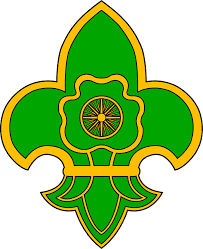PRATHAM SOPAN
PRATHAM SOPAN SYLLABUS
1) Learn about your Patrol its Flag, yell or song and corner.
2) Know general rules of health, Practice B.P’s six exercises or Six Asanas or Surya Namaskar.
3) Learn and practice Hand signals and whistle Signals,
4) Lean wood craft signs and follow a track.
5) Whip the ends of a rope.
6) Tie and show uses of reef knot, sheet bend, clove hitch, sheep shank, bowline, fisherman’s knot and round turn and two half hitches.
7) Participate in Troop Games.
8) Practice orderly movements and simple drill for smartness.
9) Know the contents of the First-Aid Box. Demonstrate the use of roller bandages and triangular bandages collar and cuff sling and triangular suspension sling. Render first aid for cuts and scratches.
10) Participate in two patrol outdoor meetings or a patrol day-hike.
11) Make a gadget or handicraft useful at home.
12) Adopt for purpose of keeping clean a park or a water-point or a bus stop or any other public spot or a Building for a week. Or observe for at least a month breeding places of mosquitoes and flies and look to its cleanliness.
13) Participate in any two of the following activities.
Patrol System
Guides are organised in small groups (about five to seven Scouts) because this is the natural way we work together. Patrols must be kept intact under all circumstances, including working, tenting, learning, cooking, and surviving together. In a Patrol the Guides learn to work with others, while the Patrol leader learns responsibility for others.
Court of Honour
The Scout patrols are subject to a Court of Honour formed by the Patrol Leaders, with the Guide Captains as advisor. This is a peer system in which Guides discuss each other's behaviour and is part of the self-governing aspect of Guiding.
1) Learn about your Patrol its Flag, yell or song and corner.
2) Know general rules of health, Practice B.P’s six exercises or Six Asanas or Surya Namaskar.
3) Learn and practice Hand signals and whistle Signals,
4) Lean wood craft signs and follow a track.
5) Whip the ends of a rope.
6) Tie and show uses of reef knot, sheet bend, clove hitch, sheep shank, bowline, fisherman’s knot and round turn and two half hitches.
7) Participate in Troop Games.
8) Practice orderly movements and simple drill for smartness.
9) Know the contents of the First-Aid Box. Demonstrate the use of roller bandages and triangular bandages collar and cuff sling and triangular suspension sling. Render first aid for cuts and scratches.
10) Participate in two patrol outdoor meetings or a patrol day-hike.
11) Make a gadget or handicraft useful at home.
12) Adopt for purpose of keeping clean a park or a water-point or a bus stop or any other public spot or a Building for a week. Or observe for at least a month breeding places of mosquitoes and flies and look to its cleanliness.
13) Participate in any two of the following activities.
(i) Undertake a nature study project in consultation with your Patrol leader.
(ii) Discuss with your Scoutmaster and render some service involving any one of the points of Scout Law and submit a report to your Scout Master.
Patrol System
Guides are organised in small groups (about five to seven Scouts) because this is the natural way we work together. Patrols must be kept intact under all circumstances, including working, tenting, learning, cooking, and surviving together. In a Patrol the Guides learn to work with others, while the Patrol leader learns responsibility for others.
Court of Honour
The Scout patrols are subject to a Court of Honour formed by the Patrol Leaders, with the Guide Captains as advisor. This is a peer system in which Guides discuss each other's behaviour and is part of the self-governing aspect of Guiding.



Comments
Post a Comment